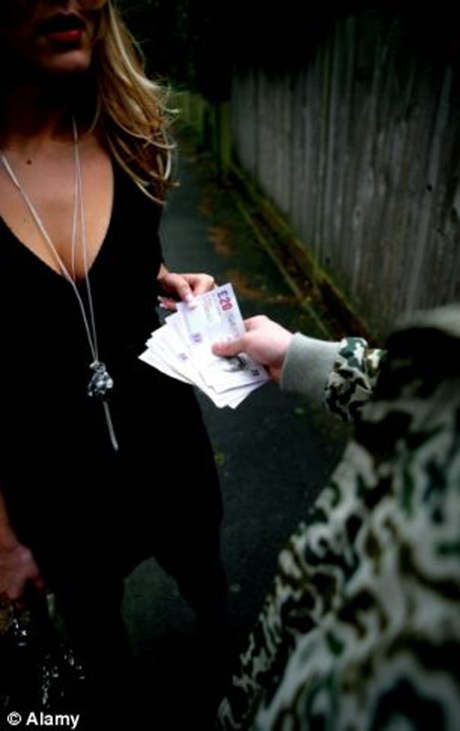Daily Mail
January 25, 2014

Laws that ban people from buying or selling sex should be scrapped because they breach their human rights, according to Amnesty International.
A policy document drawn up by the charity claims that prostitutes, pimps and men who buy sex are simply ‘exercising their autonomy’ and should be allowed to do so ‘free from government interference’.
The proposal, which also bizarrely compares prostitutes to coal miners and domestic servants, was uncovered by writer Julie Bindel.
It has now sparked a major row within the organisation, which is best known for its attempts to free political prisoners and campaigns against torture.
Last night critics said Amnesty was ‘losing the plot’ with one former member accusing the organisation of ‘betraying women’s rights’. They told the Mail: ‘We do not solve the problems for women in the developing world by encouraging them to be prostitutes. Who benefits from that? The men. Prostitution is a form of exploitation and abuse – not a choice.’
The paper, which is titled Decriminalisation of Sex Work: Policy Background Document, states: ‘Amnesty International is opposed to the criminalisation or punishment of activities related to the buying or selling of consensual sex between adults.

‘The criminalisation of voluntary sex between adults, whether for direct monetary gain or otherwise, threatens the rights to health, non-discrimination, equality, privacy, and security of person.’
Laws against prostitution undermine the right to ‘freely chosen gainful work’ and any legislation that targets men who pay for sex will leave prostitutes particularly vulnerable to ‘violence and abuse’, the document claims.
It also says countries should support the right of prostitutes to ‘freedom of association’ – thought to refer to groups of prostitutes setting up brothels.
The document goes on to say: ‘Amnesty International understands the imperfect context in which individuals choose to become sex workers (or miners or foreign domestic workers.)
‘Human rights principles require policymakers to value the voices of those who are directly affected by inequality and discrimination.
‘We believe that governments should not be devaluing [prostitutes’] decisions and choices or criminalising the contexts in which they live their lives.’
